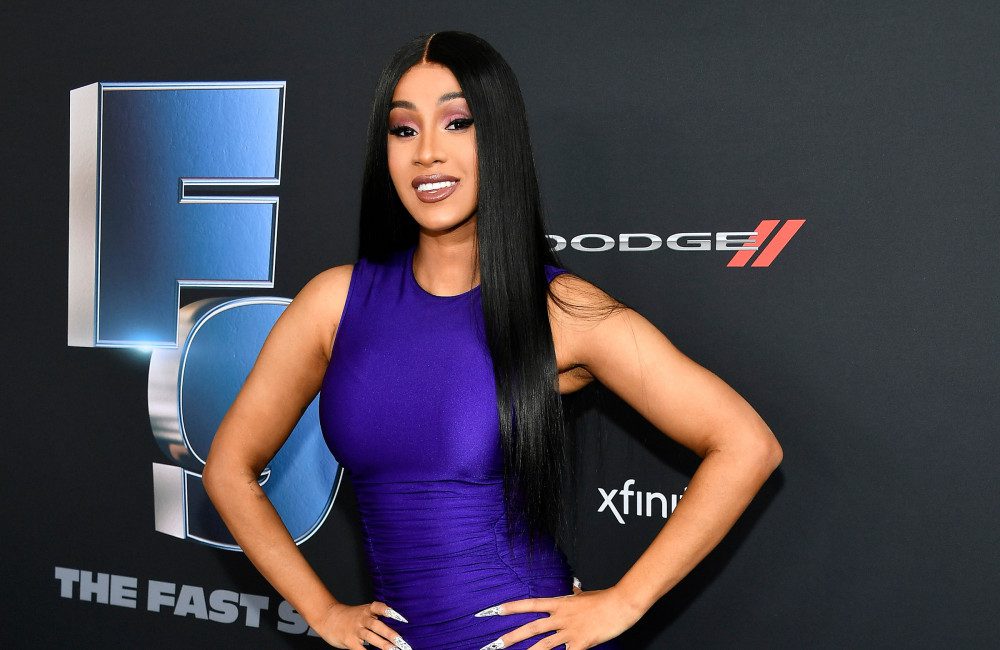In a candid update shared with her fans, Cardi B has opened up about her evolving approach to postpartum fitness and her ongoing journey to reverse previous cosmetic procedures. The rapper, who welcomed her third child in September, has been vocal about her experiences with body image and the pressures of societal beauty standards.
During a recent Instagram Live session, Cardi revealed that she underwent surgery earlier this year to remove additional butt injections. “In January, right after I shot ‘Like What,’ I went and got surgery. I got some more butt injections removed. Because, you know, it takes rounds to get your butt injections removed,” she explained. This admission highlights the ongoing process of reclaiming her body after years of cosmetic enhancements.
Cardi previously disclosed that she had 95% of the biopolymers injected into her buttocks removed in August 2022. These silicone shots were part of a procedure she underwent in 2014, which she described as a basement operation costing $800. Her journey reflects a growing trend among women in the public eye who are choosing to reverse cosmetic procedures in favor of more natural aesthetics.
Cardi B is not alone in her decision to reverse previous enhancements. Other prominent figures, including Blac Chyna, Ayesha Curry and SZA, have also shared their experiences with cosmetic reversals. This shift in perspective is echoed by plastic surgeons who report a significant change in patient desires. According to the American Society of Plastic Surgery, 2023 has seen a movement towards a more natural and athletic physique, coining the term “Ballet Body” to describe this aesthetic.
As beauty standards evolve, so do the preferences for cosmetic procedures. Patients are increasingly opting for enhancements that emphasize a slimmer, more athletic appearance, marking a departure from the Brazilian Butt Lifts and extreme augmentations that dominated the previous decade. In fact, liposuction remains the most sought-after procedure, with nearly 350,000 surgeries performed last year, reflecting a 7% increase from 2022. Interestingly, while breast augmentation and lifts saw slight increases, breast implant removals rose by 9%, indicating a significant shift in priorities.
This transformation in body aesthetics coincides with the rising popularity of GLP-1 drugs, such as Ozempic and Wegovy, which have gained traction for their weight loss capabilities. Many individuals in Hollywood and beyond are turning to these medications, further influencing the changing landscape of beauty standards. Nutritionist Kera Nyemb-Diop commented on this phenomenon, suggesting that society is experiencing a regression in body ideals. She stated, “Women’s bodies in society are products, and like any products on the market, they have a cycle: from the beginning and then they become mature. And I think the ‘BBL body’ was mature.”
The shift towards more natural body aesthetics is not just a trend but a reflection of changing societal values. As more celebrities and influencers openly discuss their decisions to reverse cosmetic procedures, it creates a ripple effect, encouraging others to embrace their natural features. This movement is also influenced by increased awareness of the potential health risks associated with certain cosmetic procedures, particularly those performed in unregulated settings.
Mental health professionals have noted the positive impact of this shift on body image and self-esteem.
The beauty industry is also adapting to this change, with many brands now focusing on products and treatments that enhance natural features rather than dramatically altering them. This includes a surge in skincare-focused beauty routines, non-invasive treatments, and makeup products designed to create a “no-makeup” look.
Social media platforms, once criticized for promoting unrealistic beauty standards, are now seeing a rise in content promoting body positivity and natural beauty. Influencers and content creators are increasingly sharing unfiltered, unedited images and videos, challenging the notion of perfection that has long dominated these platforms.
However, experts caution that while the trend towards natural beauty is positive, it’s important not to create new, equally restrictive beauty standards.
Cardi B’s journey through postpartum fitness and her decision to reverse cosmetic enhancements reflect a broader cultural shift towards authenticity and natural beauty. As more women in the public eye share their experiences, it encourages a dialogue about body image and the pressures of societal expectations. The evolving trends in cosmetic procedures highlight a growing desire for a more realistic representation of beauty, one that celebrates individuality and self-acceptance.
As we continue to witness these changes, it is essential to support and uplift one another in our journeys towards self-love and acceptance, embracing the beauty in our natural selves. The conversation sparked by figures like Cardi B contributes to a more inclusive and diverse understanding of beauty, paving the way for future generations to feel more comfortable and confident in their own skin.




